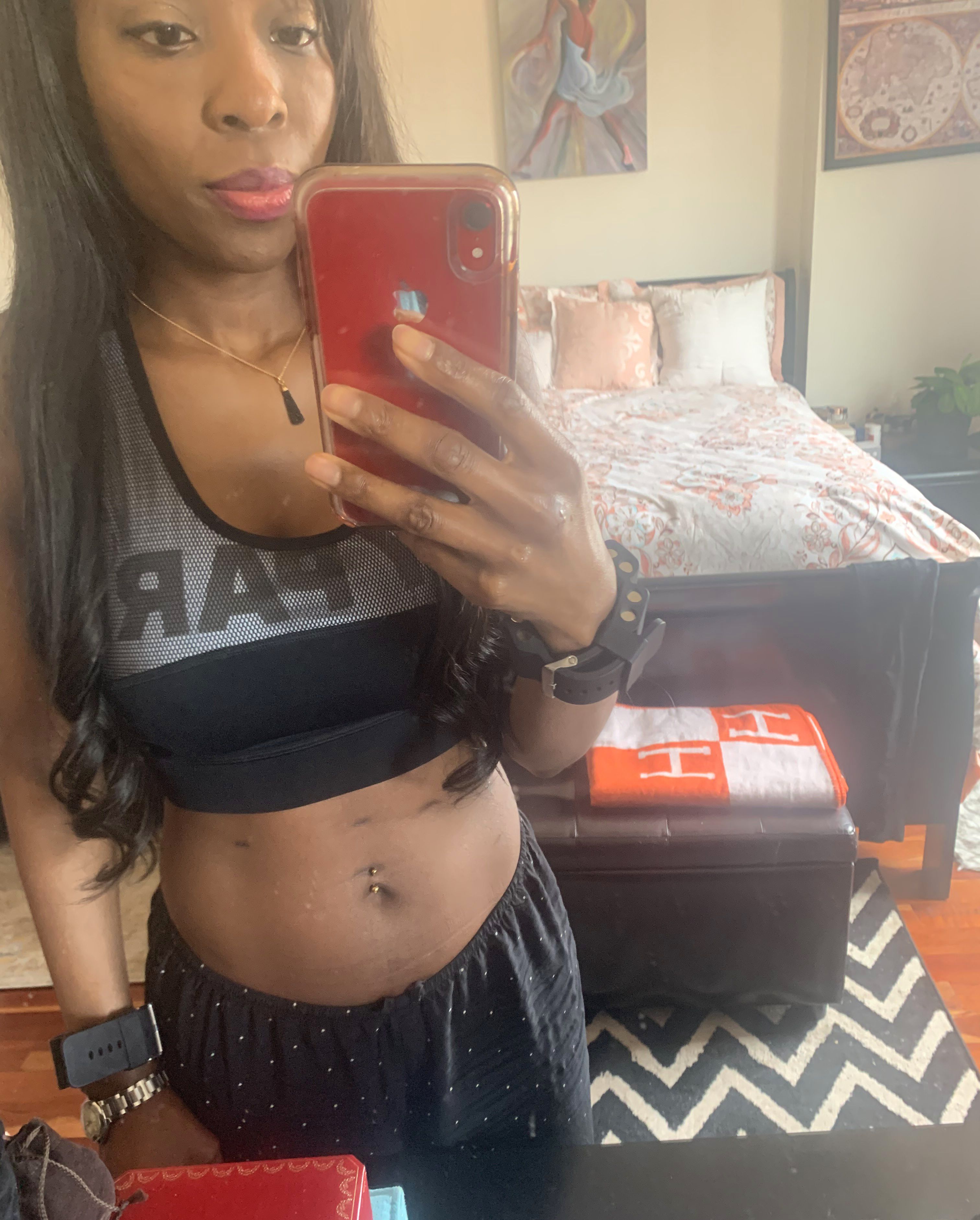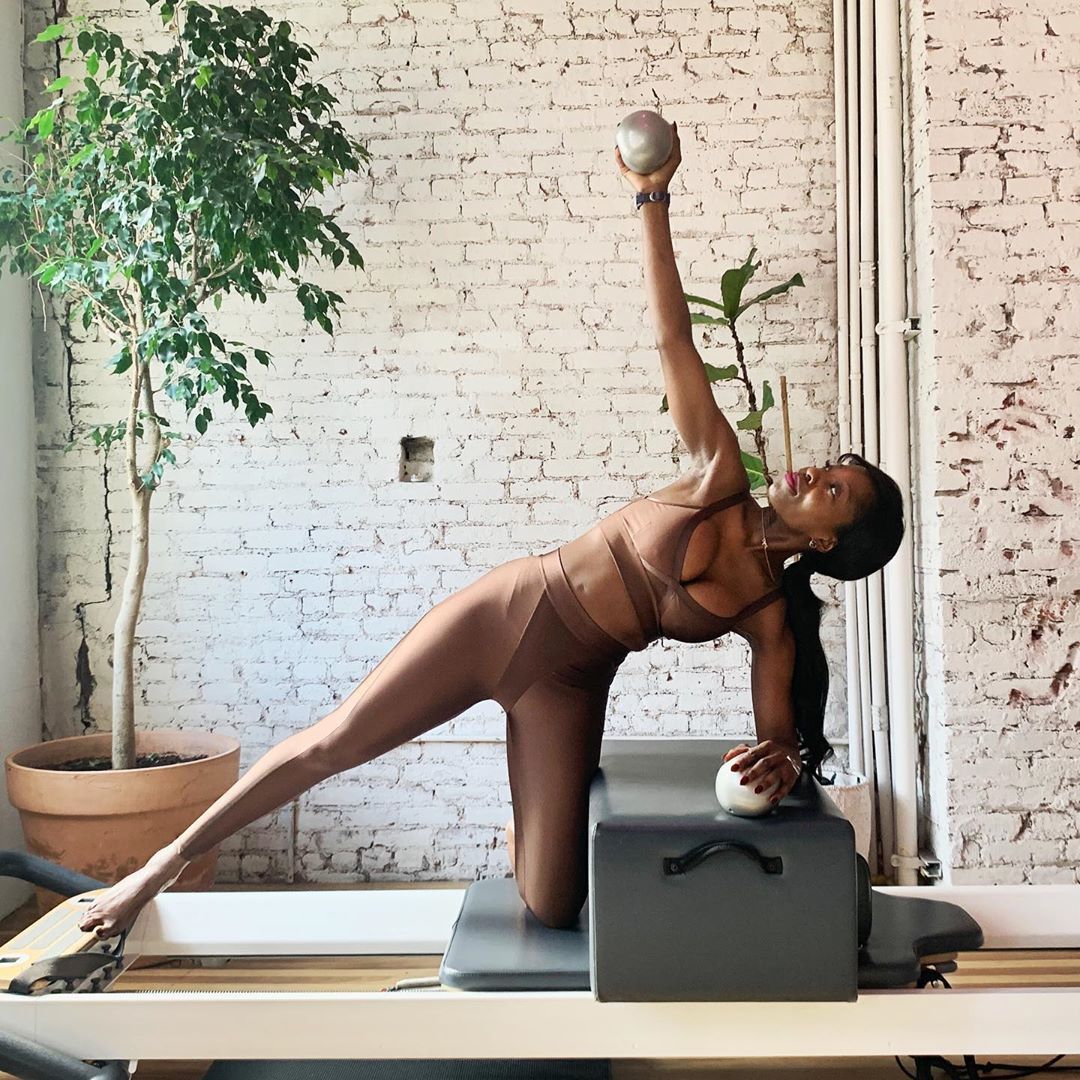When I was in my late twenties, I decided that I was going to donate my eggs. I had learned about egg donation through a friend whose aunt was going through the IVF process, and I thought it was a wonderful way to help a couple who was in need.
At the time I wasn’t 100 percent sure that I wasn’t going to have children, but I was already leaning toward no. So I researched the egg donation process and decided to go through with it in order to aid a couple who had that yearning that I didn’t have. But while preparing to undergo the process, the doctor retrieving the eggs made a discovery: I had fibroids growing inside of my uterus.
The doctor told me not to worry about them for the time being, but that eventually I might have to get them removed, and so at the time I didn’t think they were a big deal. After all, at that point I had never experienced any symptoms from having them. (In fact, most women with fibroids never experience any symptoms and require no treatment.)
Though my mom dealt with uterine fibroids herself (she had surgery to remove hers when I was younger, but we never really talked about it), my knowledge about the condition was very limited. I didn’t know that you are more at risk of developing fibroids if you have a family member who also has them. I also didn’t know that fibroids are more common and severe in African American women than those of other ethnicities.
A few years later, I started experiencing exhaustion and heavy periods.
Though I’m now a Pilates instructor, at the time I was a restaurant manager working 12-hour shifts. I was experiencing exhaustion, heavy periods, and just an overall feeling of heaviness. I looked bloated, and if I touched my belly it literally felt hard. I wondered if maybe the symptoms I was experiencing were because of my long shifts, but deep down I knew I had to go visit a doctor.
When I went to the doctor, I discovered I had about eight or nine fibroids and that my uterus was the size of someone who was about three months pregnant. The fibroids had also caused me to become anemic, which is what I suspect was causing my exhaustion at the time.
In 2013, I scheduled the surgery to have them removed, and when I went in, what was supposed to be about a 90-minute surgery turned into a three-hour surgery and two days in the hospital.
When the doctors went in to remove the fibroids, they discovered that there were more fibroids than my initial scans had picked up. They tried to remove as many as they could, but I lost a lot of blood and had to get a blood transfusion.
In the end, the doctors told me they couldn’t get to all of them, especially the ones that were embedded very deep in my uterus, because I had already been under anesthesia for too long. They told me that the ones that were left would grow larger and that I would eventually have to get another surgery.
I was very disappointed—borderline mad—at the thought of undergoing surgery again.

When I was first told about my fibroids, I could have never imagined that it would be something that was going to affect my life in such a big way.
I could have never anticipated the complications that I dealt with while undergoing my first fibroid removal surgery.
It wasn’t until I joined a Facebook support group for people with uterine fibroids that I felt like I really began to understand the health condition.
One thing I learned from the group is this: Ten to 30 percent of women who undergo surgical fibroid removal will require a second surgery within five years.
The only way to be sure that you won’t deal with fibroids again is to get a hysterectomy, something that I would have considered back then had I been equipped with this information.
When a woman opts for fibroid removal surgery, what she is really doing is buying herself time to have children. This was the case for many of the women in the Facebook group. Unlike many of the women I came across, I have never felt the pang to carry a child, and I still really don’t.
I recently learned I currently have about 20 fibroids.
I just want to be done with fibroids, since they’ve already taken such a huge toll on my life, at times even interfering with my work. Teaching Pilates requires a lot of energy, and as my fibroids get bigger, I feel my energy levels get lower.
The week leading up to my period is also difficult since bloating means my abdomen swells up even more, and that makes it difficult and borderline painful to demonstrate abs exercises. Then there’s also the time I have to take off to undergo and recover from surgery, since I can’t teach or stand or do strenuous activities for three to four weeks.It’s a lot to deal with.
I now plan on getting a partial hysterectomy.
During this surgery, I will have my uterus and Fallopian tube removed, but not my ovaries in order to prevent early menopause.
My one concern is the possibility of a pelvic floor prolapse, which is when the muscles and tissues supporting your pelvic organs become weak, and possibly loose. But I’m not too worried about it because as a Pilates instructor I’m always working on my pelvic floor.
However, I do understand that a hysterectomy isn’t the best option for everyone, especially those wanting children and it is a very personal choice. Hysterectomies make pregnancy impossible, and can lead to other side effects like blood clots, infection, and damage to surrounding areas, like the bladder and nerves. Some studies have even linked hysterectomies to an increased risk of depression.
I wish I’d been better informed about fibroids when I first learned I had them.
That’s why I’m so happy Senator Kamala Harris introduced a bill into the U.S. Senate to provide more funding for uterine fibroids research, public education, and data collection about the populations that are most affected by this condition.
I’m hopeful that her work with the fibroids bill will make it easier for other women who will develop uterine fibroids in the future. There isn’t enough talk about this condition and I encourage all women who feel that they are at-risk of developing fibroids or other reproductive system issues, like cysts, to talk to their doctors, ask them questions, and even push for a screening, if necessary.
We don’t have all the answers right now, but my hope is that even if a cure for fibroids isn’t found that we can at least figure out what exactly causes fibroids and that doctors can discover preventative measures women can take to stop them from developing.
Hopefully Kamala’s work on the fibroids bill can get us closer to that. So like Michelle Obama suggested, I’m hitting the polls like my life depends on it.

Source: Read Full Article
